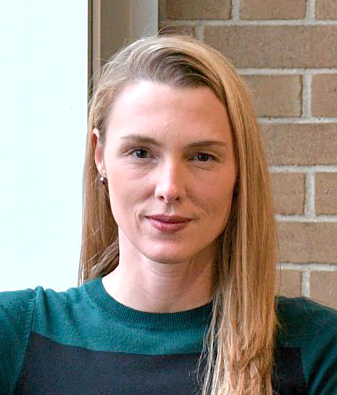U of T will be the first Canadian university with a Robert J. Glushko Senior Thesis Award for undergraduate students, thanks to its world-class reputation in cognitive science.
Professor and entrepreneur Robert Glushko has now established the award at 24 universities, with 22 in the United States and one in the U.K., along with the Department of Psychology in the Faculty of Arts & Science.
“I am consistently inspired by the calibre of cognitive science research conducted by our undergraduate students at the University of Toronto,” says U of T neuropsychology Professor Morgan Barense.

Photo: Diana Tyszko.
“With this award, we will be recognizing not only the remarkable research contributions of these young scholars, but also celebrating their great potential for the field of cognitive science.”
Barense also serves on the selection committee for the Glushko Dissertation Prize, established in 2011 for young researchers conducting ground-breaking research in cognitive science.
The undergraduate award is part of a series of prizes Glushko has established as part of an effort to recognize and support students and researchers in cognitive science.
Establishing the undergraduate award also underscores the history and connections between U of T and Glushko’s efforts to increase the prominence of cognitive science, the interdisciplinary study of the processes and functions of cognition.
In 2001, U of T University Professor Emeritus Geoffrey Hinton became the first winner of the prestigious $100,000 David E. Rumelhart Prize, established by Glushko to honor his thesis advisor and dubbed the Nobel Prize for cognitive science. Rumelhart made early contributions to the study of neural networks and deep learning, and collaborated with Hinton in the 1980s.
I want this to reward people who have the discipline and talent, and let them know they have prospects even if they don’t follow a perfectly linear path, but a more opportunistic one like mine instead.
“The University of Toronto has the best cognitive science department in Canada; it’s a great school,” says Glushko, a Silicon Valley entrepreneur in the 1990s and now an adjunct professor of cognitive science at the University of California, Berkeley.
“I think the idea of having undergraduate prizes is that, for a young person, it signals that they are going places. They are the best students from a great school,” he says.
“I want this to reward people who have the discipline and talent, and let them know they have prospects even if they don’t follow a perfectly linear path, but a more opportunistic one like mine instead.”
The undergraduate prizes are part of the San Francisco-based Robert J. Glushko and Pamela Samuelson Foundation and the Cognitive Science Society goals to encourage interdisciplinary studies of the mind and cognition in humans, animals and machines.

A rapidly emerging field, cognitive science brings together wide-ranging disciplines including psychology, computer science, neuroscience, linguistics, philosophy, artificial intelligence and anthropology, among others.
Promoting a unified cognitive science is consistent with the belief that understanding how minds work will require the synthesis of empirical methods, tools and analytic theories, the society notes.
Glushko also points out the winners of his undergraduate prizes — including 22 out of 27 last year — have tended to be women.
“Cognitive science appears to be the only the women-dominated STEM field in the world. It’s becoming a place where women can really excel,” he says.
“There are probably going to be 400 of these undergraduate awards presented over the next decade, which means these prize winners will be the bedrock of cognitive science in 10 years.”
There is no doubt about the interest and awareness of cognitive science among students, says Geoff MacDonald, acting chair of the Department of Psychology.
“Cognitive science is clearly growing in importance and is rapidly drawing increasing interest among the department’s students,” he says.
“I am very happy this award will encourage budding scholars who take an interest in this important field now and in the future.”

